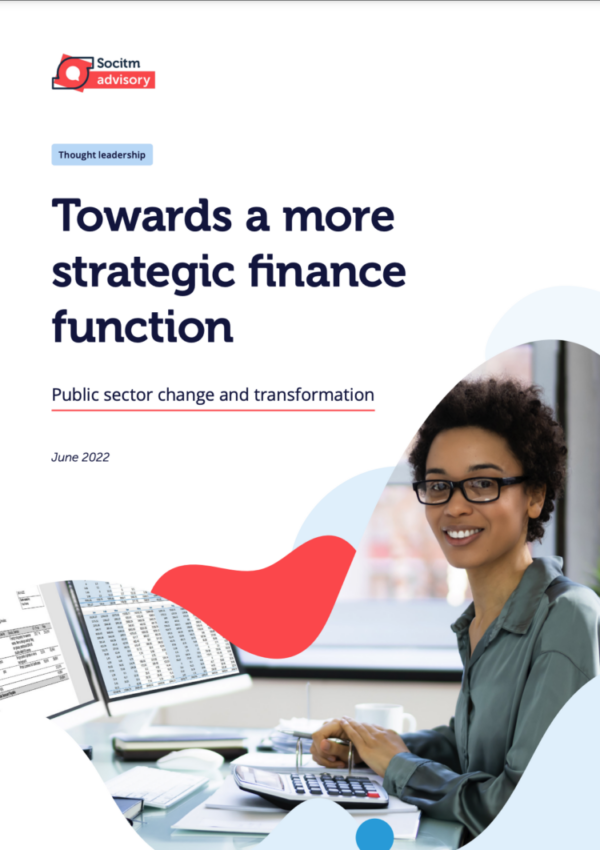Introduction
In local government, the budgetary challenges that authorities face, including a reduction in government grants, mixed opportunities for leveraging business rates/council tax and, not least, the impact of the coronavirus pandemic, very often place their Finance function at the heart of their transformation focus.
After years of delivering savings, Finance teams now needs to achieve a more fundamental transformation in order to:
Deliver efficient and cost-effective transactional services
Although local authorities have come a long way in leaning, digitising, and automating transactional processes, the sheer volumes in this space often mean improvements remain to be made. This is an area that needs to keep pace with technological innovations to improve efficiencies.
Secure financial assurance and stewardship
Stewardship of public funds is a critical function for local authorities. As well as ensuring the council achieves value for money on its spend, it must also safeguard itself against potential fraud or misuse of funds.
Provide strategic advice and business partnering
A clear trend in local government Finance is a shift towards a more strategic service – both in terms of ensuring the organisation as a whole delivers value for money for taxpayers, but also away from a culture of ‘hand-holding’ to one of empowerment.
Robust financial management needs to happen throughout the organisation. Finance Business Partners, therefore, need to adopt a coaching and enabling role to support managers to develop their own financial skills and confidence.
Common factors holding back strategic shift
Technology
Many councils are still using on-premise ERP solutions that are often dated, not user-friendly and tend to be heavily customised and poorly integrated. For Finance to get buy-in from managers to take more ownership over things such as budget monitoring and forecasting, they need to provide intuitive and insightful tools. Technology needs to do the hard work, so that Business Partners can provide the added value.
Transitioning to next-generation, cloud-based ERP is therefore often at the heart of strategic finance transformation – optimising operational efficiency, improving business insights, and elevating data integrity.
Culture
The shift to empowering budget managers and embedding financial management requires significant culture change. Changes to ways of working can be met with resistance, especially when the organisation has worked a certain way for a long time, and with long-standing staff. Budget managers may not see financial planning or monitoring as their role, and equally, finance staff may be reluctant to relinquish responsibility of their subject matter expertise.
Capability
It is often assumed that to understand financial management, there is a requirement for professional qualifications, and so can be seen as something inaccessible to non-Finance employees.
As well as systems training, councils must invest in developing financial management capability across the organisation to enable data-driven decision-making, the right accountabilities and enable a value-add Finance function.
Work smarter. We’re with you every step of the way.
Socitm Advisory is at the forefront of public services finance transformation through technology and people change. We’re a trusted partner throughout the change journey, ensuring organisations ask themselves the right questions to build a compelling case for change.
- What is your strategic direction and are you operating in the right way to achieve this?
- Are your business processes and teams as efficient as possible?
- Do you have the right tools to empower your business to manage their finances?
- Does your Finance team have the skills to strategically advise your business?
- How confident and empowered are your budget managers?
The answers to these fundamental questions will help you understand the scale of the change for your Finance team. All councils are aiming to have a more strategic, trusted Finance team. Before you get there, it’s important to discover where you are now, to then define your future way of working.
